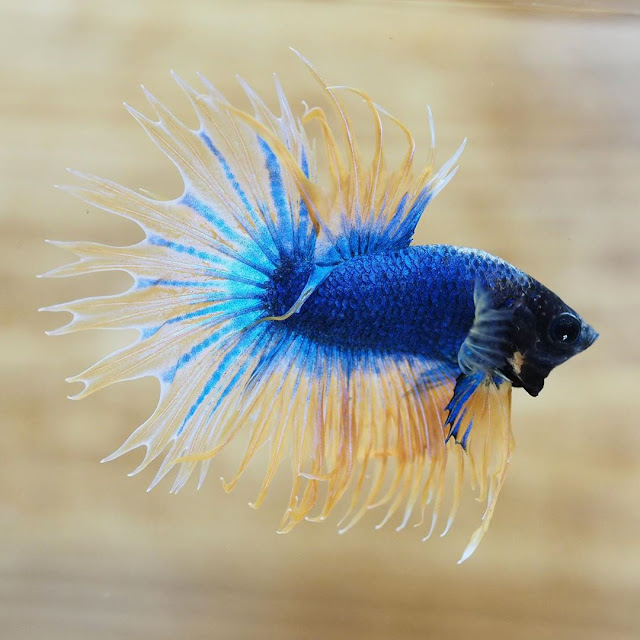The Best Tropical Algae Eaters That Will Truly Clean Your Tank: Bee Shrimp
TheBest Tropical Algae Eaters That Will Truly Clean Your Tank: Bee Shrimp – The Bee Shrimp may also be called Crystal Black Shrimp or the
Black Bee. Unfortunately the this species will not get just as much promotion
as its red cousin that is coloured. Uncommon colours is really what gain
popularity in the shrimp avocation.
 |
Photo copyright from aquaeden.co.uk
|
The Best Tropical Algae Eaters That Will Truly Clean Your Tank: Bee Shrimp
In Taiwan and other
areas with appropriate climates shrimp farms have sprung up to supply Bee
shrimp, although they can be more difficult to farm than other shrimp because
their health depends upon being elevated in soft water that fits the pH of the
native streams.
Water Paramaters
The Bee Shrimp prefers
soft acidic water. Clean water is, in addition, essential shrimp in the hobby.
Nonetheless, such as the Crystal Red Shrimp, the Bee Shrimp may also be the
shrimp that is most vulnerable when placed in dirty water. Water changes are
essential for this species.
Temperature ought to be
lower than 26oC and also the pH should range from 6.2 to 6.8, gH should be
between 4-6 and kH should be between 1-2. It's extremely important that the Bee
Shrimp be housed in particular conditions. Extremes in either water parameters
mentioned should be avoided. Water parameters become much more important as you
approach higher levels of this species. The water parameters that are necessary
will be achieved by with a product like bee shrimp minerials and trace elements
for all these shrimp.
Foundation
The Bee Shrimp is
directly related to the Crystal Red Shrimp. The truth is the Crystal Red Shrimp
is the reddish color mutation of the Bee Shrimp and is why it is sometimes
called the Red Bee Shrimp. Naturally the rest is history as much as the version
that is red is concerned.
Reproduction
Female Caridina
cantonensis can be distinguished from males by size; the female is bigger than
the male, and has a deeper abdomen. By releasing pheromones into the water
which lead the males to the female, the female shrimp sign readiness to mate.
In this time swimming task can be quite vigorous as males hunt for the females.
The eggs are taken
underneath the female's abdomen and uses the pleopods to keep a constant
circulation of water. The eggs hatch to reveal tiny variants of the mature
shrimp.
The duration the female
carries the eggs before they hatch is linked to water temperature. The
anticipated hatching time is 28 days. At 24-25°C the most powerful colours are
developed by the shrimp.
Genetic Diversity
Due to the overbreeding
of the Crystal Red Shrimp causing poor genetics and making it more delicate,
the Bee Shrimp has changed into a pseudo "genetic updater" of sorts. There
are very high grades of the Bee Shrimp that may be crossed with high grade
Crystal Red Shrimp.
These high grade Bee
Shrimp permit the genetics in the same time not lose high grade status and to
be more variable. Hopefully this approach truly helps both shade variations
keep up better immune systems with procreation, along with other
vulnerabilities that occur. It's well known that the higher the level of Bee or
Crystal Red Shrimp the higher the chance of mortality or desease. Extra care is
taken with these shrimp particularly when they're pricey levels.
Grading
Grading with this
particular species is the same as the grading with the variation that is red.
This species is applied with by all standards as much as the grading can be
involved. Getting a high grade Bee Shrimp just isn't this type of poor notion
to raise the grade of the Crystal Red Shrimp. It could possibly save you a
great deal of money rather than buying a high grade
Acquisition
The price of the Bee
Shrimp is lower than its red cousin, only due to its lower level popularity.
This can be still a trendy looking shrimp though. I guess that as the Crystal
Red Shrimp stage wears off, this species will make a revival and start to become
more popular. One cool thing could maybe be a black and reddish Bee Shrimp, an
entirely new colour varition. Perhaps one day which will occur just as the
variation that was reddish at random happened in 1996.


